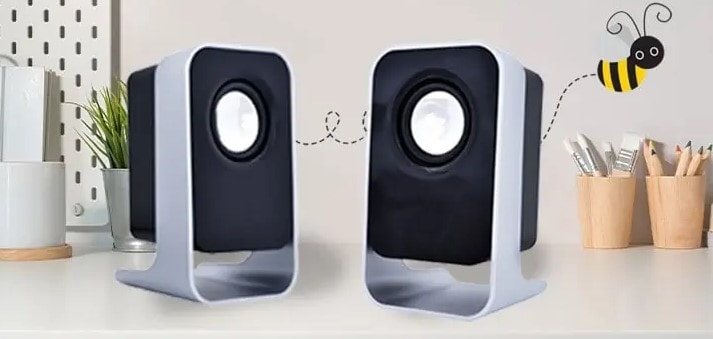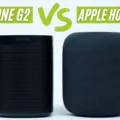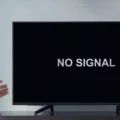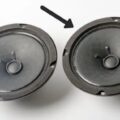Buzzing speakers can be an annoying and frustrating occurrence, but the good news is that there are steps you can take to address the issue. There are several possible causes of speaker buzzing, including problems with the volume, audio cable and port, drivers, transformer, ground loop, and frequency interference. In this article, we will explore some of the most effective tips for stopping speaker buzzing.
The first step to fixing the speaker buzzing is to check the volume. Sometimes, the buzzing may be caused by the volume being too high, in which case lowering the volume can help. If this doesn’t work, check your audio cable and port. A bad cable or port can cause buzzing, so try using a different cable or port to see if that solves the problem.
Updating your drivers can also help to fix speaker buzzing. Drivers are small pieces of software that allow your computer to communicate with your hardware, and updating them can often resolve issues with buzzing. You can check for driver updates by visiting the website of your computer or speaker manufacturer.
Another possible cause of the speaker buzzing is a problem with the transformer. If the transformer is damaged or faulty, it can cause buzzing or humming in your speakers. If you suspect this may be the case, it’s best to have a professional take a look and make any necessary repairs.
Ground loops can also cause speaker buzzing. A ground loop occurs when there are multiple paths to the ground in a system, creating a loop that can cause interference. One way to fix this is to use a ground loop isolator, which is a device that can break the loop and eliminate the buzzing.
Frequency interference can also cause speaker buzzing. This can be caused by nearby electronic devices, such as cell phones or radios, or by electrical wiring in your home or office. To prevent interference, try moving your speakers away from other devices and electrical wiring, or use shielding or filtering devices to block electromagnetic interference.
Tweaking your audio settings can sometimes help to reduce or eliminate speaker buzzing. Adjusting the equalizer or other audio settings on your computer or amplifier can sometimes help to reduce interference and buzzing.
There are several possible causes of speaker buzzing, but by following these tips, you can often resolve the issue and enjoy clear, high-quality sound from your speakers. Remember to check the volume, audio cable and port, drivers, transformer, ground loop, and frequency interference, and adjust your audio settings as needed. By taking these steps, you can enjoy your music and other audio without the annoyance of buzzing or humming.

Stopping Buzzing Speakers
To stop your speakers from buzzing, you can follow these tips:
1. Check the volume: Sometimes, the buzzing sound is caused by the volume being too high. Reduce the volume and see if the buzzing stops.
2. Check your audio cable and port: Loose or damaged cables and ports can cause buzzing sounds. Check that all cables are securely plugged in and that there are no visible signs of damage.
3. Update your drivers: Outdated or missing drivers can cause buzzing sounds. Check for updates for your sound card or audio interface and install them if necessary.
4. Check the transformer: If your speakers have a transformer, check that it is properly grounded and not damaged.
5. Fix a ground loop: A ground loop can occur when there are multiple devices connected to the same power source. To fix this, try plugging all devices into the same power strip or use a ground loop isolator.
6. Prevent frequency interference: Other electronic devices can cause interference with speakers, such as cell phones or Wi-Fi routers. Keep these devices away from your speakers to prevent buzzing.
7. Tweak your audio settings: Adjusting your audio settings may help reduce or eliminate buzzing sounds. Try adjusting the bass and treble levels, or using an equalizer to fine-tune the sound.
By following these tips, you should be able to stop your speakers from buzzing and enjoy clear, high-quality sound.
Troubleshooting Buzzing Sounds from Speakers
The reason why your speakers are making a buzzing sound could be due to a few different factors. The most common causes are a bad audio cable or electrical noise being transferred through the cable into the amplifier.
A bad audio cable can cause a persistent humming or buzzing sound. This may be due to a faulty connection or a damaged cable. In this case, replacing the audio cable may solve the problem.
Electrical noise can also be the culprit. This can be caused by a variety of sources including nearby electrical equipment, power lines, or radio waves. This noise can be transferred through the audio cable into the amplifier and cause a buzzing sound. To mitigate this, you can try moving your speakers away from potential sources of interference or using shielded audio cables that are designed to minimize interference.
The buzzing sound from your speakers could be caused by a bad audio cable or electrical noise. By replacing the audio cable and/or using shielded cables, you may be able to eliminate the buzzing sound and enjoy clear audio from your speakers.

Investigating the Cause of Buzzing Speakers When No Audio is Playing
There could be several reasons why your speakers are buzzing when nothing is playing. Some of the most common causes include electrical interference, faulty cables or connections, damaged speaker components, or issues with your audio device settings.
Electrical interference can cause static or buzzing sounds in your speakers. This can be caused by nearby electronic devices, such as a phone or computer, or even power cables that are not properly grounded. To eliminate this possibility, try moving your speakers away from other electronic devices and ensuring that all cables are properly connected and grounded.
If your speaker cables or connections are faulty, they can also cause buzzing or static sounds. Check all connections to ensure they are secure and not damaged. If you notice any frayed or damaged cables, replace them immediately.
Damaged speaker components, such as a blown speaker or damaged amplifier, can also cause buzzing sounds. In this case, you may need to replace the affected component to fix the problem.
Lastly, issues with your audio device settings can also cause buzzing or static sounds. Ensure that your audio settings are properly configured and that you have the latest drivers installed for your audio device.
If your speakers are buzzing when nothing is playing, check for electrical interference, faulty cables or connections, damaged speaker components, or issues with your audio device settings.
Conclusion
Buzzing speakers can be a frustrating problem that can significantly impact the quality of your audio experience. However, there are several effective solutions to address this issue. By checking the volume, audio cable, and port, updating drivers, checking the transformer, fixing ground loops, preventing frequency interference, and tweaking audio settings, you can eliminate buzzing and enjoy the clear and crisp sound from your speakers. It’s essential to identify the root cause of the buzzing to effectively troubleshoot the issue. With the right approach, you can resolve buzzing speakers and enjoy the high-quality audio output from your devices.








